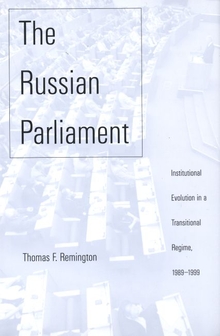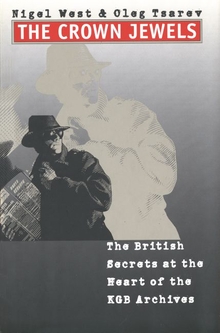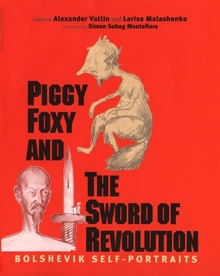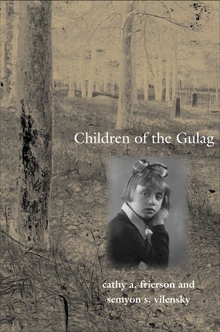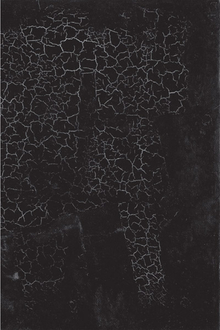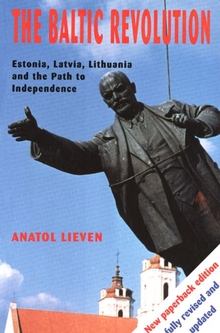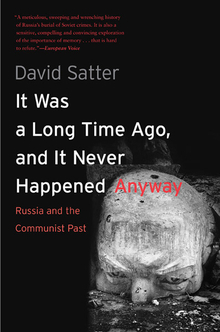The Russian Parliament
WARNING
You are viewing an older version of the Yalebooks website. Please visit out new website with more updated information and a better user experience: https://www.yalebooks.com
Institutional Evolution in a Transitional Regime, 1989-1999
Thomas F. Remington
From the first free elections in post-Soviet Russia in 1989 to the end of the Yeltsin period in 1999, Russia’s parliament was the site of great political upheavals. Conflicts between communists and reformers generated constant turmoil, and twice parliamentary institutions broke down in violence. This book offers the first full account of the inaugural decade of Russia’s parliament. Thomas F. Remington, a leading scholar of Russian politics, describes in unique detail the Gorbachev-era parliament of 1989-91, the interim parliament of 1990-93, and the current Federal Assembly.
Focusing particularly on the emergence of parliamentary parties and bicameralism, Remington explores how the organization of the Russian parliament changed, why some changes failed while others were accepted, and why the current parliament is more effective and viable than its predecessors. He links the story of parliamentary evolution in Russia to contemporary theories of institutional development and concludes that, notwithstanding the turbulence of Russia’s first postcommunist decade, parliament has served as a stabilizing influence in Russian political life.
Focusing particularly on the emergence of parliamentary parties and bicameralism, Remington explores how the organization of the Russian parliament changed, why some changes failed while others were accepted, and why the current parliament is more effective and viable than its predecessors. He links the story of parliamentary evolution in Russia to contemporary theories of institutional development and concludes that, notwithstanding the turbulence of Russia’s first postcommunist decade, parliament has served as a stabilizing influence in Russian political life.
Thomas F. Remington is Claus M. Halle Distinguished Professor for Global Learning and professor of political science at Emory University.
"By far the best study yet written on post-Soviet political institutions in Russia or anywhere else in the former Soviet Union."—Timothy J. Colton, Davis Center for Russian Studies, Harvard University
“Tom Remington has produced the definitive account of the development of the Russian legislature. In doing so, he shows clearly how post-Soviet institutions in Russia have their roots in their Soviet predecessors. But by describing how the Russian Duma has evolved from its Soviet roots, he also sheds light on broader processes of institutional change and renewal that are relevant well beyond the Russian case.”—Steven L. Solnick, Associate Professor of Political Science, Columbia University feel free to edit
“Professor Remington has written a masterful study of a poorly understood institution in post-communist Russia. This book is must reading for anyone interested in Russia and the emergence of new institutions more generally. I have no doubt that this book will become one of the standard texts in our discipline that students of Russian politics will read for years.”—Michael McFaul, Senior Associate, Carnegie Endowment for International Peace and Associate Professor, Political Science, Stanford University
“This book makes a very useful contribution to our understanding of current Russian politics.”—Ronald R. Pope, Perspectives on Political Science
“All who teach or study the politics of postcommunist Russia will be grateful to Remington for this detailed and thoughtful study that reminds us of the continuities, as well as the breaks, in the ten-year evolution of the Russian parliament.”—Mary McAuley, Slavic Review
"Thomas Remington’s book . . . powerfully advances our understanding of the Russian parliament and the formation of political institutions. . . . Scholarly and sophisticated, . . . elegantly written, well organized, and accessible to the non specialist. . . . [The] book is deeply informed by extensive interviews and first-hand observation."—M. Steven Fish, Comparative Politics
“While broad questions of system-building and democratization are addressed throughout this book, an examination of important institutional-technical details make this study highly valuable to anyone interested in the nitty gritty of decision making in the Gorbachev and especially Yeltsin periods.”—John P. Willerton, The Russian Review
ISBN: 9780300084986
Publication Date: May 11, 2001
Publication Date: May 11, 2001
304 pages, 6.125 x 9.25

